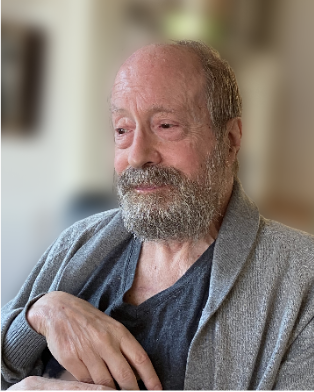Re-envisioning Perspectives On Trauma And Healing
A tri-essay collection
Traumatic Family and Hustle Culture by Minh D. Phan
Apocalyptic Anxiety and the Fragilification of Time by Robert D. Stolorow
Trauma-Informed Yoga as a Path to Trauma Healing by Monaé Weathington
Traumatic Family and Hustle Culture by Minh D. Phan
When I was between the ages of two and four, my parents sent me back to my maternal grandparents to take care of me because they were buried in work. Growing up in a family where my parents were under pressure to put food on the table taught me not to disturb them. More horribly, there was a time when I saw my mother attempting to commit suicide in front of me and my father in her battle with depression over work.
I adopted all the social norms and cultural expectations at school to meet my survival needs. They could have ranged from refraining from speaking out, nagging, or expressing certain ‘disturbing’ emotions — anything that annoyed people. I hoped I could be comforted in exchange for my submission. Even worse, the standardized education and the ranking system were built to demand a ‘perfect 10’ performance to guarantee my sense of security.
For a long time, I was used to seeing myself as full of weaknesses. I didn’t know what my advantages were, all I could see were my mistakes pointed out by my father. However, some of the most painful words from my father were “I’m going through distress because of you” when he saw I didn’t fit in the gender norms. I felt ashamed of being my true self. Indeed, what’s the point of being proud when society, especially your close ones, sees you as a defective product?
Growing up, I learned and adopted the necessary strategies and working skills to cover up my vulnerabilities. Not having empathy and tolerance for making mistakes made it hard to admit them and say sorry to others. To avoid feeling shameful and receiving enough attention and support, I strived for perfectionism and refrained from showing flaws in front of people. Hence, this mindset made me susceptible to letting others determine my self-worth.
Surprisingly, modern economics jumped in as a one-size-fits-all solution. It was conditioned to give rewards and recognition for people to strive for ‘success’ in professional work, which were the things I longed for to make up for my insufficiency of acknowledgment.
At work, I experienced imposter syndrome when facing the absence of consistent positive feedback in my code reviews from a senior. Therefore, I kept working harder to cope with my inadequacy when comparing myself to anyone. I became a covert narcissist as I felt bad whenever I tried to establish my borderline. I tortured myself whenever I said no to people’s wills as I projected my emotions onto the rejected ones in the name of empathy.
Feeling full of despair, I indulged myself in any means of entertainment and materialism to boost my dopamine and feel content. Paradoxically, does materialism want me to feel sufficient? Regardless of how often the hustle culture wore me out and made me feel ‘not enough,’ I also took pride in overcoming those obstacles by refusing to stay stagnant. I fell into the trap of overt narcissism where I constantly tried to stand out as a pick-me in any scope as if it was never enough to be praised in only one field when I could become multi-talented.
In the modern world, such narcissistic traits are pretty much welcomed and praised by most organizations to establish customer relationships and maintain the retention rate, while simultaneously converting them into revenues. Driven by a chronic fear of being rejected, people numb all their present emotions while living in shame, making us suffer for being just ordinary humans and finding life isn’t worth living.
Nevertheless, it hit the hardest when I ruined some of my relationships by picking up that attitude at work and invalidating other team members’ feelings due to the strenuous workload. Finally, I became a piece of the puzzle named Hustle and Bustle.
Apocalyptic Anxiety and the Fragilification of Time by Robert D. Stolorow
Heidegger (1927) distinguished sharply and famously between fear and existential anxiety (Angst). Whereas fear is about a dangerous entity, Angst is about human existence as such, specifically its finitude. When one is anxious, everyday ways of fleeing from finitude have broken down, and one is confronted with the inevitability of death and nothingness. Existentially, we are “always already dying.”
I have found that, in general, trauma disrupts the linear conception of time and fractures the unitary structure of our temporal existence. Experiences of emotional
trauma become freeze-framed into an eternal present in which one remains forever trapped, or to which one is condemned to be perpetually returned through the retraumatizations supplied by life’s slings and arrows. In the region of trauma, all duration or stretching along collapses, past becomes present, and future loses all meaning other than endless repetition. Traumatic temporality is disclosed in our traumatizing confrontations with human finitude and correspondingly, as Heidegger developed extensively, in the affective state of anxiety.
Typically, humans evade finitude by constructing emotional worlds populated by metaphysical entities that replace transience and existential vulnerability with permanence and invincibility. A common example is the lover who proclaims to the beloved, “I will love you forever,” eternalizing both lover and beloved. The crumbling of such metaphysical illusions of permanence is a common source of emotional trauma (Stolorow, 2021).
The ordinary experience of time amalgamates two essential dimensions. One is a metaphysical conception, harking back to Aristotle’s metaphysics, picturing time as an infinite succession of “nows” unfolding in linear fashion toward an open future. In the existential conception of time, by contrast, every “now” transcends itself and points back to the past and ahead toward the future. The relationship between the two essential dimensions is a grounding relationship. In the ordinary conception of time, the metaphysical conception (objective time) grounds the existential (my time), and the two are joined in a seamless unity. By nullifying all future possibilities, the traumas of climate change destroy this grounding unity of time.
It is planet earth that provides a home for the human kind of being. For humans, to be is to dwell on earth, and to dwell requires that they safeguard and preserve the earth that houses them (Stolorow, 2020). Characteristically, such protectedness is sought in metaphysical illusion—the transformation of this vulnerable planet into an invincible everlasting entity. This age-old metaphysical illusion is not faring well in the face of the perils of climate change. The human way of being cannot survive the impending homelessness foreshadowed by climate change, a prospect so horrifying that people turn way from it altogether, thereby evading the threat and abandoning the search for solutions.
The specter of climate change confronts us with the destruction of not just individual lives but of human civilization itself; and the destruction of human civilization would also terminate the historical process, through which we make sense of our individual existences. I want to call the horror that announces such a possibility “apocalyptic anxiety.” Apocalyptic anxiety anticipates the collapse of all meaningfulness. And it is from apocalyptic anxiety that we turn away when we deny the extreme perils of climate change.
Such turning away perpetuates the dangers and shields them from ameliorative action. The practice of a therapeutic comportment that I call “emotional dwelling” with one another could be of help here. If we could embrace one another as “siblings in the same darkness,” our shared apocalyptic anxiety could become more tolerable and less prone to evasion, making possible a greater caring for future generations and for the planet that would be their home. If future possibilities and the unity of time can be recovered, it will be through such emotional bonds with one another.

Citation: Stolorow, R. D. (2024). Apocalyptic anxiety and the fragilification of time. Trauma Psychology News, 19(1), 10-11. https://traumapsychnews.com
ROBERT D. STOLOROW, PhD, PhD, is a Founding Faculty Member at the Institute of Contemporary Psychoanalysis, Los Angeles, and at the Institute for the Psychoanalytic Study of Subjectivity, New York City. He is the author of World, Affectivity, Trauma: Heidegger and Post-Cartesian Psychoanalysis (2011) and Trauma and Human Existence: Autobiographical, Psychoanalytic, and Philosophical Reflections (2007) and coauthor of eight other books, including The Power of Phenomenology (2018) He received his PhD in Clinical Psychology from Harvard University in 1970, his Certificate in Psychoanalysis and Psychotherapy from the Postgraduate Center for Mental Health, New York City, in 1974, and his PhD in Philosophy from the University of California at Riverside in 2007.
Trauma-Informed Yoga as a Path to Trauma Healing by Monaé Weathington
Trauma survivors encounter distinct trauma-related barriers when using psychotherapy due to worries about reliving and confronting painful events and memories (Kantor et al., 2017). Additionally, talk therapy primarily focuses on cognition, which may not be accessible to all trauma survivors (Sibrava et al., 2019). Due to these problems, treatment strategies that specifically address emotional and physiological dysregulation are required.
Research data suggest yoga is an effective prevention practice and adjunctive treatment for various medical and mental health conditions (e.g., chronic pain, anxiety, and depression) (Lemay et al., 2019; Roland et al., 2012; Sherman, 2011). Additionally, research findings suggest that yoga and mindfulness practices are beneficial treatments for depression, anxiety, and posttraumatic stress disorder (PTSD) symptoms due to modifying neurotransmitter levels, reducing rumination and negative thoughts, reducing physiological stress, and encouraging adaptive thinking (Macy et al., 2015). Therefore, scientific research supports yoga as a promising treatment for a number of general and trauma-related mental health issues.
Trauma Center Trauma-Sensitive Yoga, founded by David Emerson, addresses the unique symptoms and needs of trauma survivors. Trauma-informed yoga (TIY) focuses on interventions that engage the parasympathetic nervous system (PSNS) (i.e., restorative poses and breathing exercises). Through TIY, students can learn more effective and non-threatening strategies to regulate their bodies (Justice et al., 2018). TIY deliberately fosters bodily autonomy, freedom of choice, and empowerment, all of which are often violated in traumatic events (Nolan, 2016). With an emphasis on present awareness and interoception, TIY stresses asana postures and modifications that meet the psychological and physical needs of the person (West et al., 2017). Furthermore, TIY combines emotional safety and trustworthiness (Cook et al., 2017).
